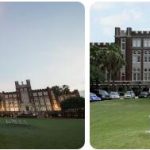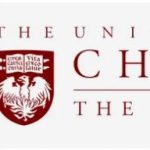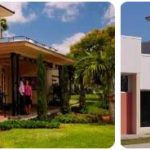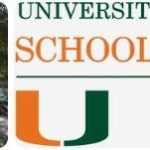Loyola University Chicago School of Law was founded in 1908. The school was initially located at the corner of Wabash and Congress Street and became a part of the Loyola University in 1909. Over the years, the school has grown to become one of the top law schools in the United States. It is now located on the Water Tower Campus of Loyola University Chicago and offers a variety of programs for students interested in legal studies.
The school’s curriculum focuses on practical legal training with an emphasis on research, writing, and advocacy skills. Students are encouraged to participate in a variety of activities such as moot court competitions, internships, clinical programs, and externships that help them prepare for their careers as lawyers. The school also offers a number of joint degree programs with other universities such as Northwestern University School of Law and John Marshall Law School. In addition to its traditional JD program, Loyola also offers an LLM program for those who already have law degrees from other countries or institutions. The school’s faculty is composed of distinguished scholars and practitioners who are dedicated to providing students with quality legal education.
Loyola University Chicago School of Law is located in the state of Illinois. As one of the leading law programs, Loyola University Chicago School of Law has a high average LSAT score of 158-162 when recruiting new students. As a return, the median starting salary for law graduates reaches $100,433 per year. See the following table for detailed admissions information and career profiles of Loyola University Chicago School of Law.
Admissions: Loyola University Chicago
Loyola University Chicago School of Law is an accredited law school that is part of the prestigious Loyola University system. The school offers a variety of programs for students interested in pursuing a legal education. The admissions process for the school is competitive, with an average acceptance rate of approximately 40%. The median LSAT score for accepted applicants is 155, and the median GPA is 3.45. Additionally, the school has an impressive student-faculty ratio of 9:1, ensuring that each student receives personalized attention from their professors and advisors. Furthermore, the school boasts a strong alumni network, with successful graduates employed in top law firms and corporations around the world.
| Fall 2019 Admissions and Enrollment Statistics | |
|---|---|
| Total number of full- and part-time applicants | 4,236 |
| Total number of full- and part-time acceptances | 1,284 |
| Overall acceptance rate | 30.3% |
| Total number of full- and part-time first-year students enrolled | 268 |
| Number of full-time program applicants | 3,565 |
| Number of full-time program acceptances | 1,133 |
| Full-time acceptance rate | 31.8% |
| Number of first-year full-time students enrolled | 203 |
| Number of part-time program applicants | 671 |
| Number of part-time program acceptances | 151 |
| Part-time acceptance rate | 22.5% |
| Number of first-year part-time students enrolled | 65 |
| Fall 2019 GPA and LSAT Scores | |
| 25th-75th percentile GPA scores for all students | 3.24-3.6 |
| 25th-75th percentile LSAT scores for all students | 156-161 |
| 25th-75th percentile undergraduate GPA for full-time students | 3.29-3.62 |
| 25th-75th percentile LSAT scores for full-time students | 158-162 |
| 25th-75th percentile undergraduate GPA for part-time students | 3.06-3.5 |
| 25th-75th percentile LSAT scores for part-time students | 153-158 |
Careers: Loyola University Chicago
| Bar Statistics (Winter and Summer 2018 administrations) | |
|---|---|
| State where the greatest number of first-time test takers took the bar | IL |
| School’s bar passage rate for first-time test takers | 94.3% |
| Statewide bar passage rate for first-time test takers | 90.8% |
| Class of 2018 Graduates | |
| Total graduates | 232 |
| Graduates employed at graduation | 69.9% |
| Graduates known to be employed nine months after graduation | 93.7% |
| Starting Salaries of 2018 Graduates Employed Full-time | |
| 25th percentile private sector starting salary | $60,521 |
| Median private sector starting salary | $100,433 |
| 75th percentile private sector starting salary | $144,238 |
| Percent in the private sector who reported salary information | 50% |
| Median public service starting salary | $50,922 |
| Areas of Legal Practice (Class of 2018) | |
| Percent employed in academia | 1.0% |
| Percent employed in business and industry | 17.0% |
| Percent employed in government | 13.0% |
| Percent employed in all judicial clerkships | 3.0% |
| Percent employed in law firms | 62.0% |
| Percent employed in public interest | 4.0% |
| Percent employed in an unknown field | 0.0% |
| Percent employed in a judicial clerkship by an Article III federal judge | 1.5% |
| 2018 Graduates Employment Location | |
| Graduates employed in-state | 82% |
| Graduates employed in foreign countries | 0.5% |
| Number of states where graduates are employed | 22 |
| New England (CT, ME, MA, NH, RI, VT) | 1.0% |
| Middle Atlantic (NY, NJ, PA) | 1.5% |
| East North Central (IL, IN, MI, OH, WI) | 86.7% |
| West North Central (IA, KS, MN, MO, NE, ND, SD) | 0.5% |
| South Atlantic (DE, DC, FL, GA, MD, NC, SC, VA, WV) | 3.5% |
| East South Central (AL, KY, MS, TN) | 1.5% |
| West South Central (AR, LA, OK, TX) | 0.5% |
| Pacific (AK, CA, HI, OR, WA) | 2.5% |
| Mountain (AZ, CO, ID, MT, NV, NM, UT, WY) | 2.0% |
| Employment location unknown | 0.0% |
| Career Services | |
| (Data appear as originally submitted by this school) | |
| Career services operations | The Office of Career Services is staffed by three full-time lawyers, a career counselor and a recruiting coordinator. The Office provides individual counseling, resume and cover letter review, interview preparation including mock interviews, an annual on-campus interview program, a patent law interview program as well as numerous speakers and career-oriented programming throughout the year. |
| Job Type | |
| Bar admission required or anticipated (e.g., attorney and corporate counsel positions, law clerks, judicial clerks) | 74.0% |
| J.D. preferred, law degree enhances position (e.g., corporate contracts administrator, alternative dispute resolution specialist, government regulatory analyst, FBI special agent) | 16.0% |
| Professional/other (jobs that require professional skills or training but for which a J.D. is neither preferred nor particularly applicable; e.g., accountant, teacher, business manager, nurse) | 9.0% |
| Nonprofessional/other (job that does not require any professional skills or training or is taken on a temporary basis and not viewed as part of a career path) | 1.0% |









